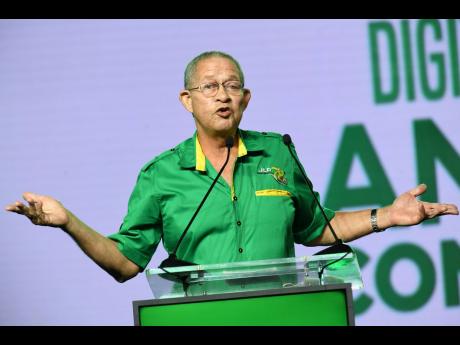Scandals spark board reform fast track
A slew of scandals dogging the Government has caused Prime Minister Andrew Holness to call for the fast-tracking of the Public Bodies Management and Accountability Regulations, 2020, to bolster the governance framework of the boards of public bodies.
Speaking at the Jamaica Labour Party’s (JLP) 78th annual conference at the National Indoor Sports Centre in Kingston, Holness said that boards of public bodies must be carefully selected.
He said, at the same time, that he will be directing Cabinet ministers to revisit agencies under their portfolios to ensure that they are “properly missioned and purposed”.
“I believe that several events over the last few years have demonstrated that the intersection between politics and governance on public boards represents an unnecessary risk and exposure to the Government,” Holness said, adding that what is needed is properly run public machines to execute good policies.
His comment follows last week’s transfer of Clarendon Alumina Production Limited from the Robert Montague-led mining ministry to the finance ministry, in the wake of controversy surrounding the final in a series of contracts issued to CCA Capital Partners.
The brouhaha triggered the resignation of board chairman Norman Reid, who reportedly objected to the move.
The majority of the board has since resigned.
The under-fire minister also dissolved the boards of the Airport Authority of Jamaica (AAJ) and its subsidiary Norman Manley International Airport weeks earlier amid a Gleaner expose and after Finance Minister Dr Nigel Clarke told Parliament that the entities broke the law when they made a J$450-million stock purchase in the St Lucia-registered firm, First Rock, without his ministry’s permission.
The Private Sector Organisation of Jamaica has raised concerns about alleged impropriety on public boards, noting that it is disappointed in the governance of public resources.
Holness said, while the country has a highly evolved governance and anti-corruption framework with regards to the Integrity Commission, the Major Organised Crime & Anti-Corruption Agency, the Financial Investigations Division, and the Auditor General’s Department, among others, regulation for the selection of public bodies is urgently needed to complete the support.
He said, however, that concerns have been raised internally about how the regulation will limit the possibility of citizens wishing to participate in the political and governance processes.
But former JLP leader and Prime Minister Bruce Golding warned that the continued erosion of public trust amid the scandals, many of which involved public boards, could cost Holness.
Golding disclosed that he has urged his successor to crack his whip, noting that he has the political capital to do so.
He said that Holness was being forced on to the back foot too often.
“I said to him as my leader, as my successor and as my friend, ‘You have that political capital. Don’t be afraid to use it. It is necessary to use it because, if you don’t use it, you will lose it’,” Golding said, suggesting that some ministers had been failing in the proper oversight of their ministries.
Acknowledging that the public bodies have budgets that together rival central government’s, Holness said that the best and most capable governance must come from board members.
“So, I’ve directed the minister of finance to return the legislation to Parliament and to immediately have it passed,” said Holness.
The regulations specifying criteria for the appointment of boards of public bodies stalled in the House of Representatives in July last year, owing to the lack of a quorum.
The Public Bodies Management and Accountability (Nomination, Selection and Appointment to Boards) Regulations, 2020 is seeking to match the appropriate set of skills and competencies of persons with the relevant bodies, to enable them to carry out functions effectively.
The proposed regulations are to ensure that board appointees meet minimum predetermined criteria.
Additionally, a key proposal is that a minimum of one-third of public bodies’ board members is carried over from one political administration to the next, so that institutional capacity is not undermined in the event of a change in the country’s leadership.

